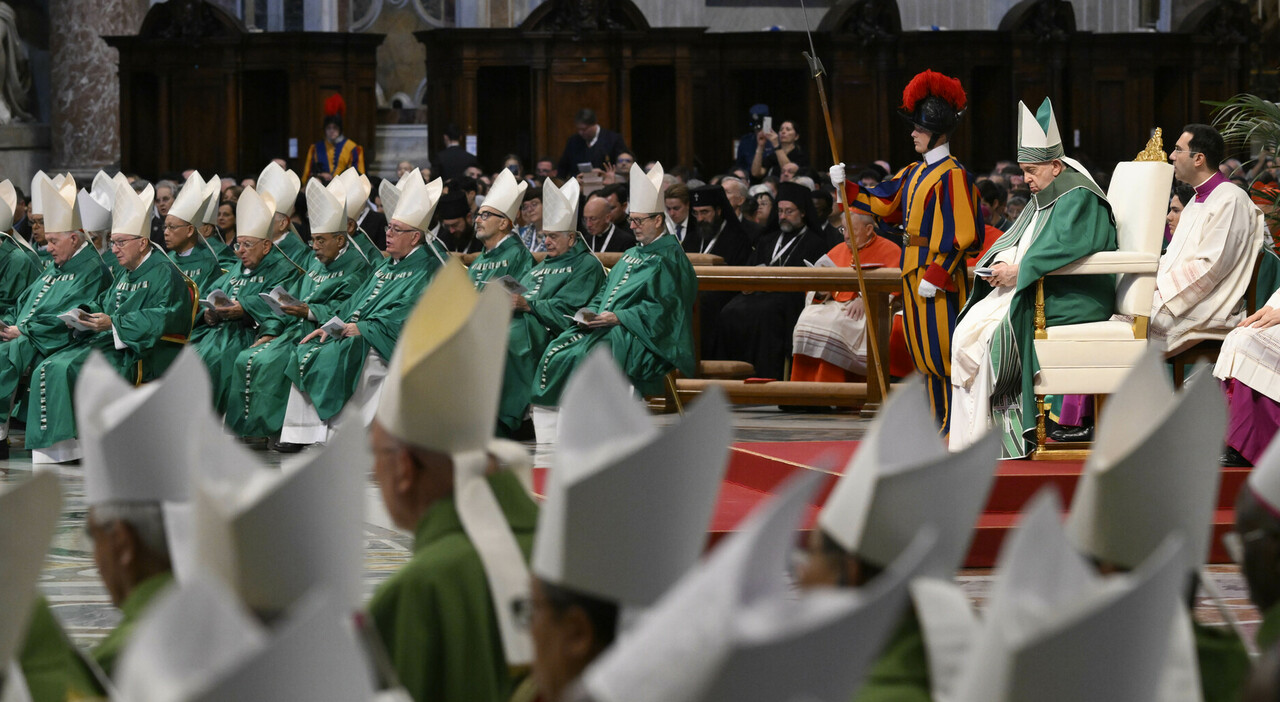Saturday 23 March 2024, 17:42
It is a positional war that has been dragging on for four years. For the moment, the conflict has solidified, waiting to see how the next Synod scheduled for autumn will unfold. On one side is the Vatican and on the other are the German bishops who have embarked on a formidable path strongly marked by reforms considered indigestible even by Pope Francis. Female priesthood, changes to the Catechism in the part concerning sexual morality, abolition of mandatory celibacy for priests, greater democracy in the management of the Church. Over these years, Pope Francis has made several steps forward, accepting some of the demands made by German Catholics, for example, the blessing of gay couples (which were already in force in many dioceses in Germany), although the measure has caused an unprecedented uproar across the globe. However, many fear that sooner or later it could lead to a rift, perhaps even to a schism, although this word remains taboo.
From the informal talks of these last months, it seems that the will to reach a composition rather than the decision to blow up the bank prevails. These days an official meeting has ended in the Vatican between the most important curial cardinals and the bishops of Germany who came to Rome to understand how the synod on synodality that will be held in October and on which the hopes of Catholics are focused, especially on the issue of women. Before the meeting, the bishop of Hildesheim, Heiner Wilmer, a super progressive, made it known to Rome that there would be no schism and 'none of the bishops of Germany ever wanted it,' he wrote for the theological portal Communio.de.
Adding that the conflict should not be interpreted as a power issue in the style of 'Rome against Germany' or 'Germany against Rome'. The bishops, Wilmer assured, are faithful to the Pope and at the same time must 'stand by the faithful in the name of Jesus Christ, understanding their pain and concerns, not only in everyday life and society, but also in relation to our Church.' Then the voice of a curial exponent was recorded, the cardinal in charge of preparing the synod, Mario Grech who in turn launched conciliatory messages: 'The diaconate is a different space for women in the Church and is a natural deepening of the will of the Lord.' Perhaps it will not reach priesthood, but probably to the diaconate.
The joint press release issued by the Holy See and the German Episcopal Conference at the end of the meeting in the Vatican sums up well the nothingness of the fact and the respective waiting positions. From the text, it is understood that the talks must not have been so simple, in fact, it talks about differences between reformers and conservatives. The German delegation included the bishops Bertram Meier (Augsburg), Peter Kohlgraf (Mainz), Franz-Josef Overbeck (Essen), Michael Gerber (Fulda), and Stephan Ackermann (Trier). The four curial cardinals, instead, were: Victor Fernandez, Kurt Koch, Pietro Parolin, Robert Prevost, and Arthur Roche, as well as the jurist archbishop Filippo Iannone. 'The meeting, which lasted the entire day, was characterized by a positive and constructive atmosphere' with 'differences and points of agreement.' A rather vague and unclear statement, as the future outcome of the German synodal path decided not to turn back might be.
If the German bishops have reluctantly agreed to give up the project of a new diocesan body capable of democratically supporting the bishop in decisions, they will hardly back down on the rest of their agenda. The Catholic agency KNA summarized that at the moment the 'bottom line is that both parties are saving face, at least outwardly.' On June 14 and 15, the committee of German bishops will meet in Mainz even though what will be decided will then have to be submitted to Rome. In recent months, the president of the Episcopal Conference, Georg Bätzing, had repeatedly complained to journalists that, despite all efforts, there had been no real dialogue with the officials in the Vatican.
© ALL RIGHTS RESERVED
This article is automatically translated
